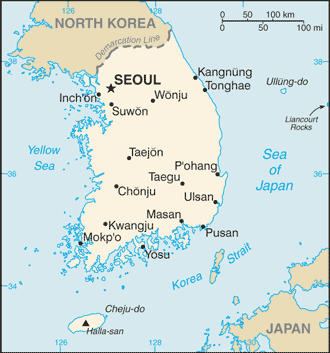In a move that had been widely expected by the polls, Democratic Party candidate Moon Jae-in has won the presidency of South Korea today, following a special by-election which related the impeached Park Geun-hye. Moon had previously run for president in 2012, but narrowly lost to Park, who is now facing serious charges of bribery and abuse of power.
 Moon is a major departure from the recent string of hawks in the South Korean presidency, advocating peaceful reunification with North Korea and promising to visit the reclusive nation at the first opportunity after the election. He is seen as keen to return to the Sunshine Policy of the early 2000s, aimed at improving bilateral ties and trying to avoid war.
Moon is a major departure from the recent string of hawks in the South Korean presidency, advocating peaceful reunification with North Korea and promising to visit the reclusive nation at the first opportunity after the election. He is seen as keen to return to the Sunshine Policy of the early 2000s, aimed at improving bilateral ties and trying to avoid war.
That’s not likely to sit well with the Trump Administration, which has repeatedly panned diplomacy in general as a “failed” tactic and has been talking up increasingly confrontational policies toward North Korea. Moon, however, is well aware of this, saying he thinks it is very important that South Korea should develop a less lop-sided relationship with the US ,and “learn to say no to the Americans.”
Moon is also a former human rights lawyer who seeks to outright repeal a number of South Korea’s repressive national security laws, and dramatically reform the National Intelligence Service, transforming it into an overseas-only intelligence agency, and eliminating its broad domestic spying powers.
The reforms are both a part of his general desire to turn South Korea into a more “responsible” nation in the region, and out of the practical reality that the harsh national security state has leaned heavily toward conservatives for years, and has made the election of Democrats and other opposition figures like himself all but impossible, barring surprise circumstances like an impeachment.
Moon is also pushing for the reopening to Kaesong Industrial Park, an industrial facility in which South Korean companies can employ North Korean workers. The site has been closed repeatedly in the midst of tensions, but is also seen as a key way for South Korea to foster an improved relationship with its long-time rival.


